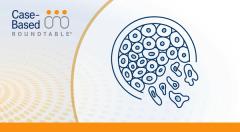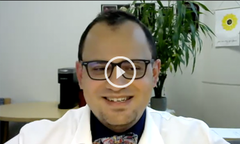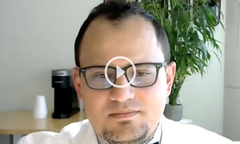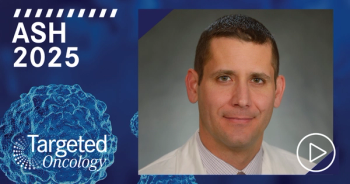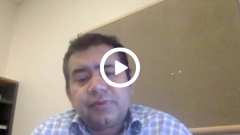
Providing Resources for Relocation Expands CAR T Access in RRMM
Samer A. Al’Hadidi, MD, discusses social determinants and resources that can help patients receive chimeric antigen receptor T-cell therapy for relapsed/refractory multiple myeloma.
Episodes in this series

Samer A. Al’Hadidi, MD, assistant professor in the Department of Internal Medicine — Division of Hematology and Oncology at UAMS Winthrop P. Rockefeller Cancer Institute in Little Rock, Arkansas, discusses social determinants and resources that can help patients receive chimeric antigen receptor (CAR) T-cell therapy for relapsed/refractory multiple myeloma (RRMM).
During a Case-Based Roundtable event, Al’Hadidi said he heard concerns from other oncologists about patients needing support to be treated with CAR T-cell therapy. Patients who already live near a CAR T-cell center don’t face major issues, but those who live further away face challenges because they need to remain close to the center for 4 to 5 weeks for monitoring.
Al’Hadidi said that there are resources being offered to patients and their families who need to relocate temporarily, such as covering expenses of lodging and food as well as other support. His institution and others have recognized that these barriers are keeping patients from relocating. He added that this discussion was beneficial to the participants as some were surprised to know these resources may be available, which could change how they consider patients for referral to receive CAR T cells.
TRANSCRIPTION:
0:10 | I think one of the things that was discussed is focusing on the social determinant of offering those CAR T-cell therapy. There were some concerns about the support that patients may get during this process. I think that is variable according to where the patient who has been referred is located in regards to the CAR T Center. For patients who are living close to the CAR T Center, I don't think this major issue is there, but for patients who need to relocate for the duration of around 4 to 5 weeks to do the CAR T cell therapy, there was some discussions on how to actually optimally do that.
0:48 | I think we did actually discuss some resources that are being offered to patients and their families, including lodging expenses being covered, along with also some food allowance and other things that could have helped patients to get this product, because we realized that there [is] a cost on patients that we need to kind of help them cover to be able to relocate to do those CAR T-cell therapies. I think this was a very fruitful sort of discussion, because for some of the community oncologists, they were surprised to know that such things could have been possible for patients and that may make it easier to consider for some patients.


